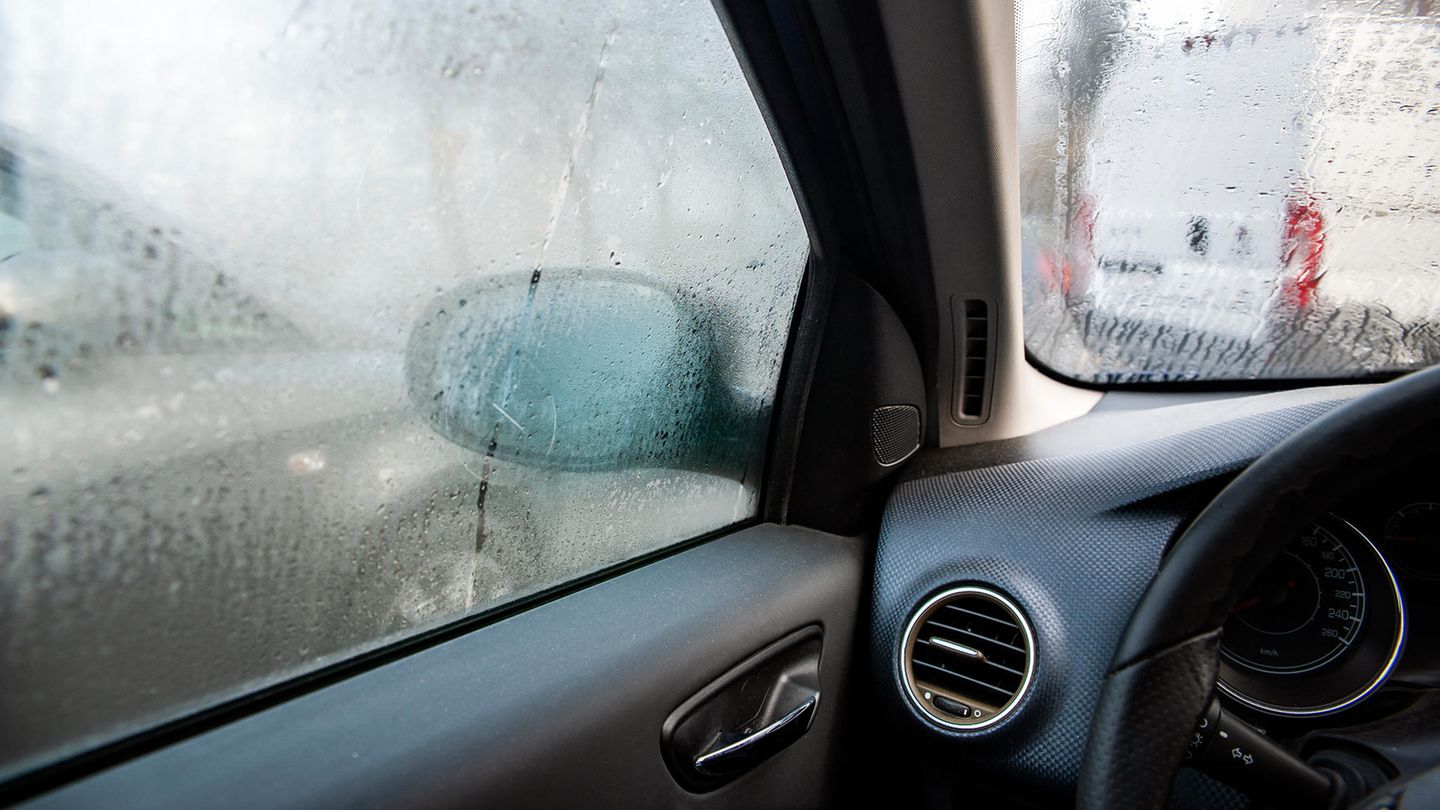Image: (APA/AFP/PAIGE TAYLOR WHITE)
In the province of British Columbia, two fires merged into a fire of more than 41,000 hectares, according to the authorities on Saturday evening (local time). The region around Shuswap Lake in the south of the province is affected. Destroyed houses and burnt-out cars could be seen in the CBC broadcaster in the town of Scotch Creek. There was no official information about the damage.
Orders were in place across the province that around 35,000 people should be brought to safety, Prime Minister David Eby said at a press conference on Saturday evening. An evacuation warning was issued for around 30,000 other people. Tourist trips in the affected areas are now prohibited, it said. Reason: Accommodation should be kept free for emergency services and evacuees. “Given the drought and the winds, the situation is changing very quickly,” warned Eby.
Provincial Disaster Management Minister Bowinn Ma called on affected residents to heed calls for evacuation immediately. “They are a matter of life and death, not just for the people in these homes, but for the first responders who often go back and try to get people to leave.”
A state of emergency was declared in British Columbia on Friday. “This year in British Columbia we are witnessing the worst wildfire season on record,” it said in a statement. The situation in the province has changed rapidly in the past 24 hours, it said. “We face an extremely challenging situation in the coming days.”
The city of West Kelowna, which has a population of 30,000, was particularly hard hit by the fires. According to the authorities, a “considerable number” of houses burned down there. The metropolitan city of Kelowna, across Okanagan Lake, was shrouded in thick smoke on Saturday. The so-called McDougall Creek Fire had reached several communities on Lake Okanagan, which is popular with tourists, on Friday. According to estimates by the authorities on Sunday, it covered an area of 11,000 hectares. The fire had increased in size more than tenfold since Friday. Thousands of people had to leave their homes and several buildings were destroyed.
The luxury hotel Lake Okanagan Resort, which in the past has hosted high-ranking politicians such as British Prime Minister Margaret Thatcher, was one of the buildings devastated by the blaze, according to images circulating in local media.
So far there have been no reports of deaths, said the head of the local fire department, Jason Brolund, at a press conference on Friday evening. However, emergency services were temporarily trapped by the flames when they had to rescue residents who, despite evacuation orders, did not want to leave their houses.
Prime Minister Justin Trudeau said he had spoken to British Columbia Prime Minister David Eby about the “rapidly developing and incredibly devastating wildfires” and pledged government help. In addition, firefighters from Australia, Mexico, Brazil and Costa Rica as well as from eastern Canada are supporting the western province in fighting the flames.
More than a thousand wildfires are currently raging across Canada, including more than 370 in British Columbia. In the Northwest Territories, where authorities counted more than 230 fires, the town of Yellowknife, home to around 20,000 people, has been almost completely evacuated in the past 48 hours.
It’s the “first time” anything of this magnitude has happened in the region, 82-year-old Tony Whitford said on Saturday. He and his family were evacuated from Yellowknife to Calgary in Alberta, about 1,750 kilometers south, on Thursday.
Strong winds initially fueled the wildfires towards Yellowknife, but things eased somewhat on Saturday after overnight rain had cooled significantly. However, “a little rain doesn’t mean it’s safe to return home,” Northwest Territories Environment Minister Shane Thompson warned at a news conference on Saturday night. “Even though the fire is not visible on the surface, it is active and huge,” he said. A further rise in temperature is also expected on Sunday, he added.
A total of around 14 million hectares of forest have already burned in Canada this year, and four people have died in forest fires. According to scientists, climate change is leading to more frequent and more violent forest fires. According to fire ecologist Johann Georg Goldammer, experts have been predicting increased fires for Canada for decades. “This is inevitable due to the drying out of the soil, the forests and the wetlands.” In northern latitudes there is a lowering of the groundwater level in many areas. “There used to be fire return intervals of 300 to about 900 years.” Evidence of this can be found in tree rings and the datable deposits of charcoal. “We are already seeing a significant reduction in these intervals.”
Wildfires are an annual phenomenon in many parts of Canada, and there is always a need to evacuate people. However, this year is the worst known wildfire season in the country’s history. In the prairie provinces of western Canada, the average temperature has risen by 1.9 degrees Celsius since the mid-20th century, according to the Department of Environment and Climate Change.
Across the border in the US, several thousand people had to flee forest fires in neighboring Washington state. According to local media reports, at least one person died there. Evacuations have been ordered in the town of Medical Lake, near the town of Spokane and near a US Air Force base. A section of highway connecting Washington’s capital Seattle with the east of the country was also closed, the authorities said.
Source: Nachrichten




